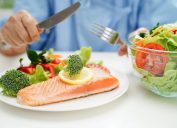7 Weight-Loss Habits Nutritionists Recommend Instead of Counting Calories
Health experts dish out some other tips that could help you shed pounds.
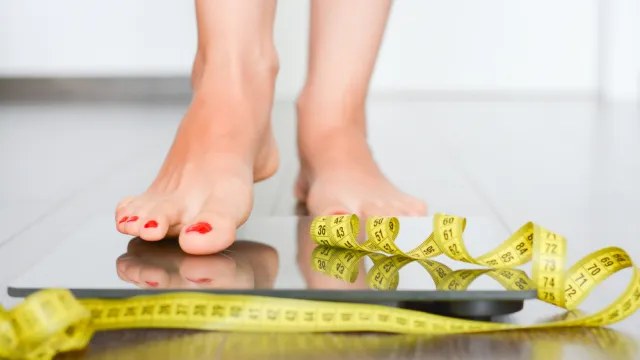
For many, one of the most challenging parts about losing weight is coming to terms with the fact that you can't eat whatever you want in the process. But just because you're looking to slim down doesn't mean you'll have to resort to dietary gymnastics for the sake of keeping your daily calories low. In fact, experts say there are plenty of other methods, changes, and tricks you can adopt when it comes to eating that can be even more beneficial than logging your intake. Read on for the weight loss habits nutritionists recommend instead of counting calories.
RELATED: Doctor Calls Out These 4 Unhealthy Diet Trends You Should Always Avoid.
1
Eat a protein- and fiber-rich breakfast.

The adage about breakfast being important isn't exactly overblown. According to nutritionists, incorporating the right foods into your morning meal can make staying focused on eating right for the rest of the day easier.
"Adding nuts or seeds to oatmeal, enjoying a tofu scramble with veggies, or adding hemp seeds to avocado whole grain toast are examples of protein- and fiber-rich breakfasts," Nichole Dandrea-Russert, MS, RDN, author of The Fiber Effect and nutritionist from Purely Planted, tells Best Life. "Studies show protein and fiber can support weight management and metabolic health."
Why else is it so helpful? She says that both protein and fiber keep you feeling full for longer, "reducing hunger and contributing to consuming fewer calories throughout the day."
RELATED: I'm a Weight-Loss Expert and Here's My Proven Plan for Dropping Pounds in 2024.
2
Add more color to your plate.
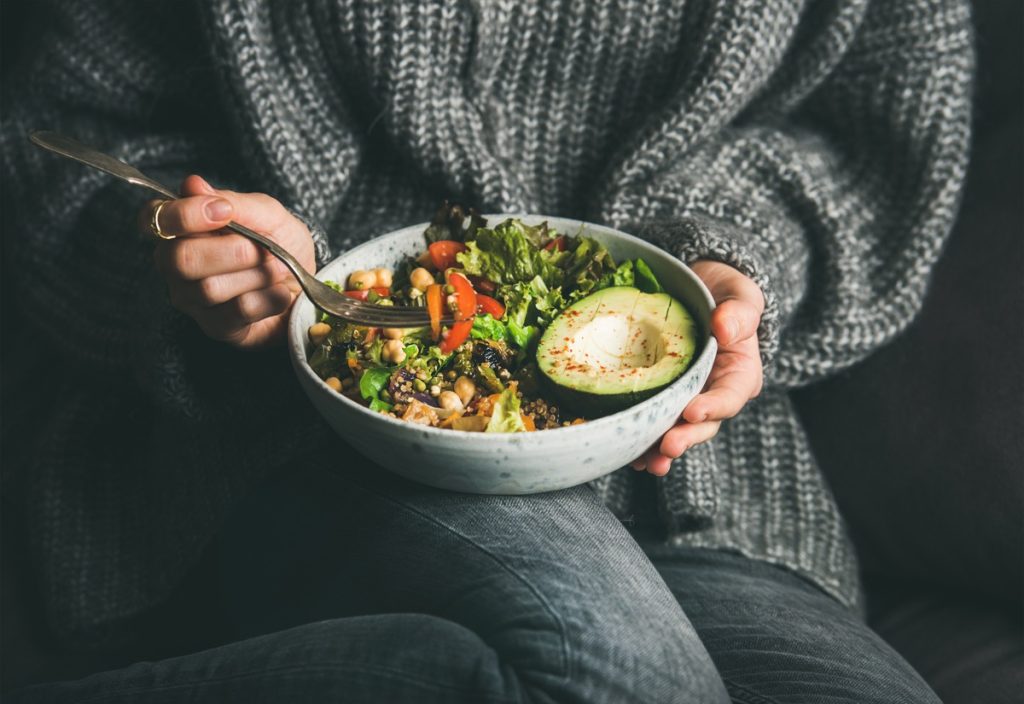
Plating your food to look good isn't just about making it appetizing. Instead of relying on fancy techniques, experts suggest shooting for the rainbow when it comes to putting meals together.
"Mix it up and make a 'colorful plate' that includes leafy greens, brown whole grains, and maybe even an orange mango slice!" suggests Kathleen Jordan, MD, a weight loss expert and chief medical officer at Midi Health. "Most colorful foods introduce fiber, protein, and lots of nutrients and minimize pasta, white rice, and white bread, which add emptier calories. "
RELATED: 43-Year-Old Doctor Who Lost 80 Pounds Shares Her Weight-Loss Diet.
3
Don't entirely skip carbohydrates.
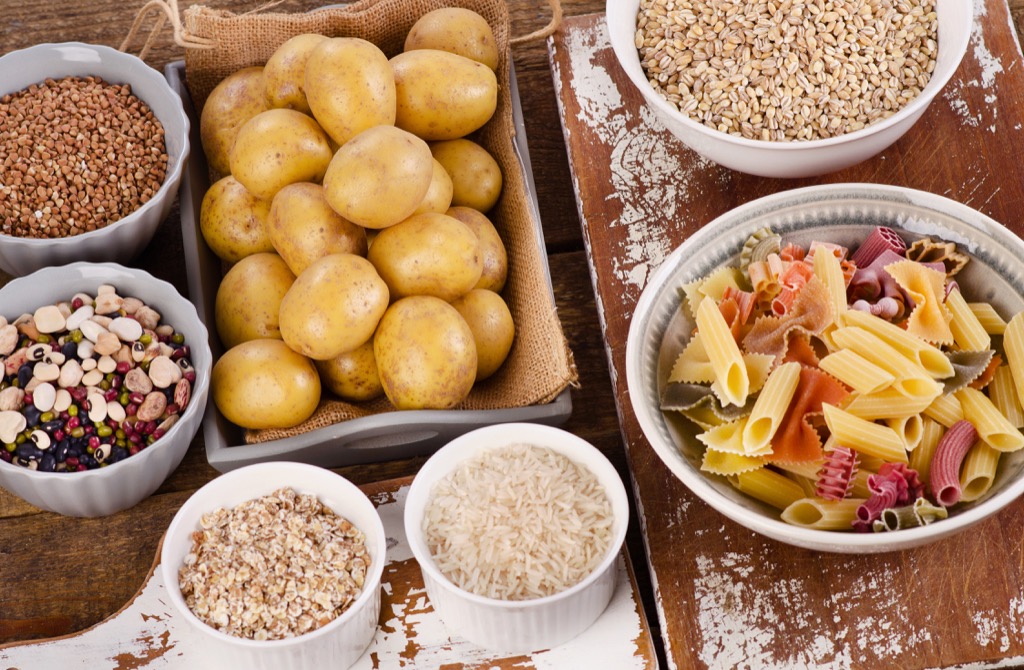
"Carbs" has become something of a dirty word in the weight loss world. But Dandrea-Russert says that much of this reputation comes from a misunderstanding about choosing the right foods.
"I often hear people say they are cutting out carbohydrates to help manage their weight. However, omitting healthy carbohydrates—from starchy foods, like sweet potatoes or whole grains—can be detrimental to gut health," she says.
She points out that research shows whole grain consumption can benefit gut health, which in turn can support a healthy metabolism. "One study showed that a diet rich in whole grains supported weight management and reduced inflammation compared to consumption of refined grains," she says.
If you're looking for a place to start off, Dandrea-Russert recommends incorporating a variety of whole grains and grain-like seeds, including oats, brown rice, buckwheat, and quinoa, to benefit gut health and metabolism.
4
Focus on getting good sleep.

Losing weight is almost always about more than what you do and don't put on your plate. Jordan says that getting plenty of good sleep can be one of the best ways to help shed pounds—and can still have a surprising effect on your diet.
"It can actually help you lose weight," she says. "Poor sleep is linked to weight gain as it can result in exhausted days when you may avoid exercise and reach for carbs to give you quick energy."
She adds that both hormone changes from menopause and mid-life stressors can contribute to poor sleep, with the hormone changes of menopause being so disruptive to sleep that they lead to weight gain. If you're struggling to doze off even after shifting your schedule and pre-bedtime habits, it can help to speak to a specialist about which methods are best for your needs.
RELATED: Cardio vs. Core Workouts: How to Really Get a Flat Stomach, Experts Say.
5
Go for spicy foods.
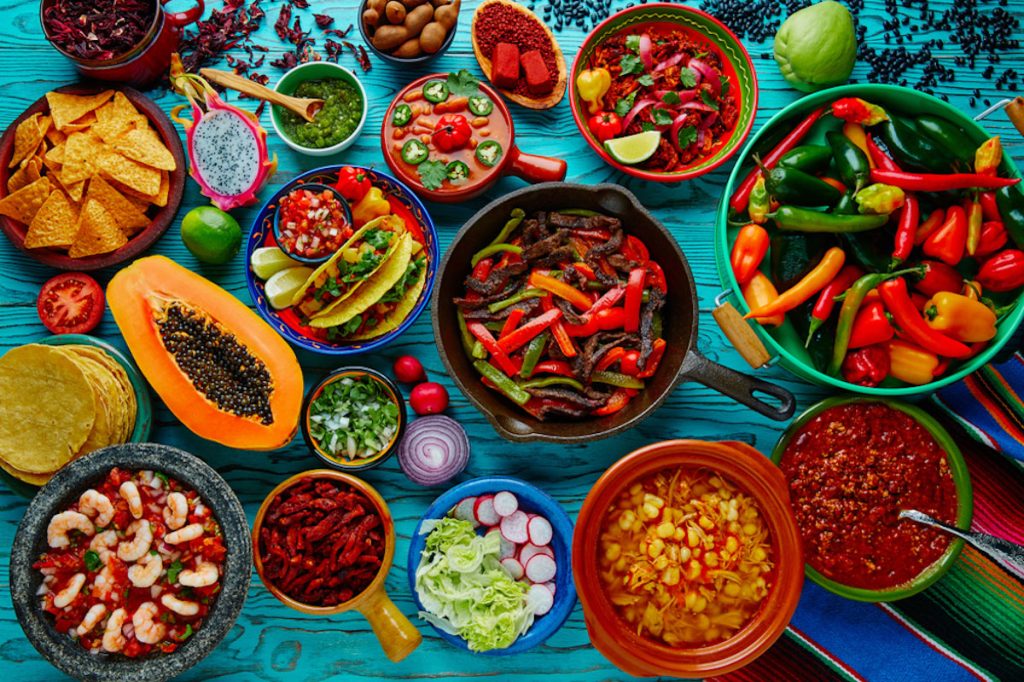
Some people look forward to adding a spicy kick to their meals for flavor reasons. But surprisingly, this can also be a helpful tactic when you're trying to shed pounds.
"Including foods with a little heat, like chili pepper or ginger, may help to support metabolism," says Dandrea-Russert.
Besides being flavorful, they also contain helpful compounds. She cites capsaicinoids in chili pepper, as well as gingerols and shogaols in ginger, which have all been shown to help with fat loss and potentially boost metabolism.
"Plus, they're both packed with other phytonutrients that act like antioxidants, so if you can stand the heat, add them to stir-fries, casseroles, and soups," she adds.
6
Swap artificially sweetened drinks with water.

Staying well-hydrated can have plenty of health benefits of its own. But when it comes time to choose what to drink, it's usually best to go with cold water instead of sodas or juices—even if they're advertised as low-calorie or "diet."
"Artificial sweeteners come with side effects, like disrupting the gut microbiota and metabolism," Dandrea-Russert tells Best Life. "Non-caloric food additives were introduced to reduce calorie intake—however, research shows that long-term use of artificial sweeteners may instead lead to weight gain and abdominal fat."
She explains that artificial sweeteners may also create a disconnect between the amount of sweetness the brain tastes on the tongue and how much blood sugar actually ends up reaching the brain. Ultimately, your brain may feel "cheated" by artificial sweeteners, thinking that you need to consume more sweetness to get enough calories.
If you want to add a little flavor to your drink, try adding natural flavoring to water instead. "Lemon, basil, mint, and cucumber all make great, tasty, and nutritious additions to plain or carbonated water!" she says.
7
Consider intermittent fasting.
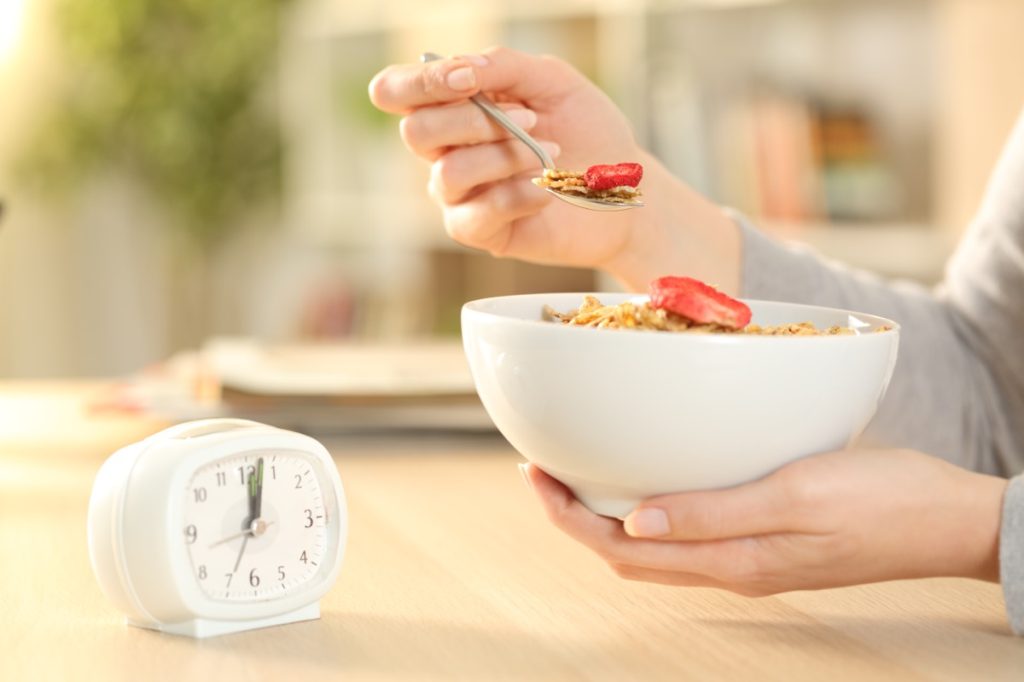
Changing what you eat can be a big step towards losing weight. However, changing when you eat can also yield some surprising effects.
"Timed eating and fasting diets are affordable, accessible diet tools anyone can use," says Jordan.
She explains that there are many variations of this. They include timed eating—which limits meals and snacks to an eight-hour window every 24 hours—and more intense intermittent fasting that can rely on more restrictive boundaries two days out of the week and eating normally for the rest. However, she says both can benefit our health and metabolism with some other added perks.
"These practices result in avoided food intake and will also often eliminate the often unhelpful snacking that goes on for many of us," Jordan explains. "Foods we snack on are often not our most nutritious food source throughout the day, so eliminating these can make a major difference," she says, adding that fasting can also make us snack more mindfully and prepare our meals more purposefully.
Both methods can also improve metabolism by improving insulin sensitivity—meaning that these periods of no glucose intake actually train our bodies to use food energy better. "So the benefits are not just about the missed calories during the fast, but also about optimizing our use of fat and sugar stores all the time," she says.
Best Life offers the most up-to-date information from top experts, new research, and health agencies, but our content is not meant to be a substitute for professional guidance. When it comes to the medication you're taking or any other health questions you have, always consult your healthcare provider directly.




